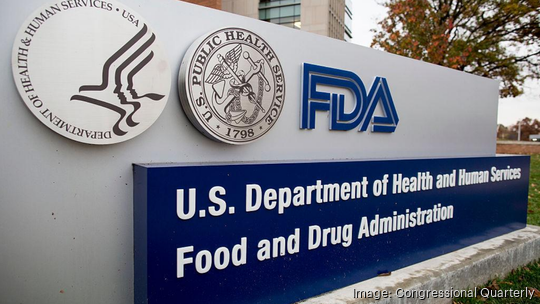
A Triangle-based startup wants to change how adrenaline is delivered to patients to treat life-threatening allergic reactions in emergency situations.
Belhaven Biopharma formed in 2021 around the goal of developing a dry powder formulation of epinephrine that can be administered through a nasal device to treat anaphylaxis. The company's lead program, called Nasdepi, would be a needle-free alternative to existing treatments like EpiPen and other generic epinephrine auto-injectors.
Belhaven has raised about $7 million from three separate seed rounds over the past few years, including a $3 million bridge round the company closed in December, CEO Scott Lyman said. The company will soon begin raising money for a Series A round as it advances its clinical development plans.
The company has also received support from the North Carolina Biotechnology Center. Belhaven in 2021 received a $250,000 small-business research loan to support preclinical studies of Nasdepi. The company in late 2022 received another $500,000 in a strategic growth loan to prepare for clinical trials.
Belhaven recently completed its first study in humans and plans to move into a larger, confirmatory study before dedicating resources toward a pivotal study. That study, which Belhaven expects to take place this summer, could position the company for a potential regulatory approval.
All of these studies involve healthy volunteers, speeding up the clinical trial process. The company is pursuing a regulatory pathway with the U.S. Food and Drug Administration called 505(b)(2). Because epinephrine is already approved to treat anaphylaxis, and its safety and efficacy are well understood, Belhaven essentially just needs to show that it's dry powder formulation delivers a bioequivalent dose of the liquid formulations already used in auto-injectors.
This regulatory pathway is typically faster and less capital intensive, Lyman said. The company is aiming for $10 million to $15 million in its next funding round, which would support the remaining clinical development work and position Belhaven to file a new drug application with the FDA in 2025.
Belhaven plans to find a partner that would take on the product for commercialization. As a small firm with only a few employees, the company instead wants to focus on where it already excels: navigating the research and development process.
"We think this gives patients a better chance of gaining access to this product," Lyman said.
Lyman was previously the chief business officer of Grid Therapeutics, a biotech based in Durham. He also previously held roles at GSK (NYSE: GSK) and Amgen (Nasdaq: AMGN).
Belhaven is one of multiple companies trying to bring a new treatment into a billion-dollar market that has long been dominated by auto-injectors. Patient advocacy groups like Allergy & Asthma Network say a needle-free option for epinephrine would address an unmet need for patients.
Another company with local ties, Bryn Pharma, is advancing its own nasal spray alternative to injectable epinephrine. Meanwhile, California company ARS Pharmaceuticals last year failed to gain approval of its epinephrine nasal spray, with the FDA requiring the company to complete additional research.
Lyman doesn't anticipate the FDA's response to ARS to affect Belhaven's efforts as the companies are pursuing different formulations of the drug. ARS is developing a liquid formulation of epinephrine, while Belhaven is developing a dry powder.
Belhaven believes its dry powder formulation has advantages, like a longer shelf life and more stability in extreme temperatures. It would also be easier to use and administer compared to existing injections, the company says.
Following this initial program, Lyman said Belhaven could use the same framework to tackle other emergency medicines that are delivered through intramuscular injections. Lyman cited a nerve agent treatment the military uses that delivers three products through two auto-injectors. The company sees potential in trying to formulate all of the medicines so they could instead be delivered in one dry powder.
